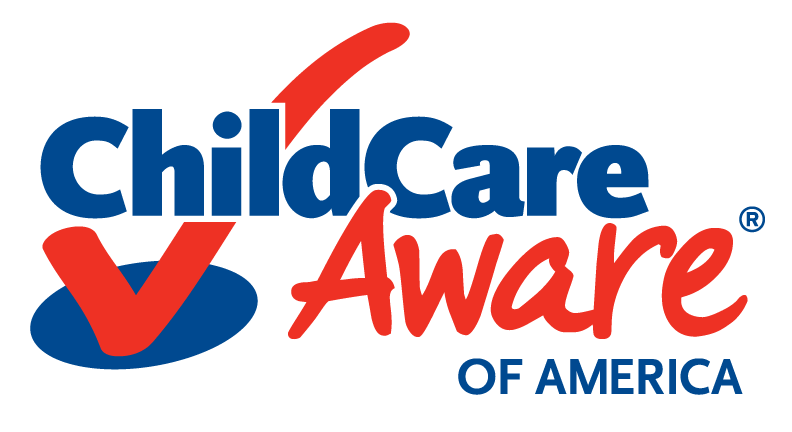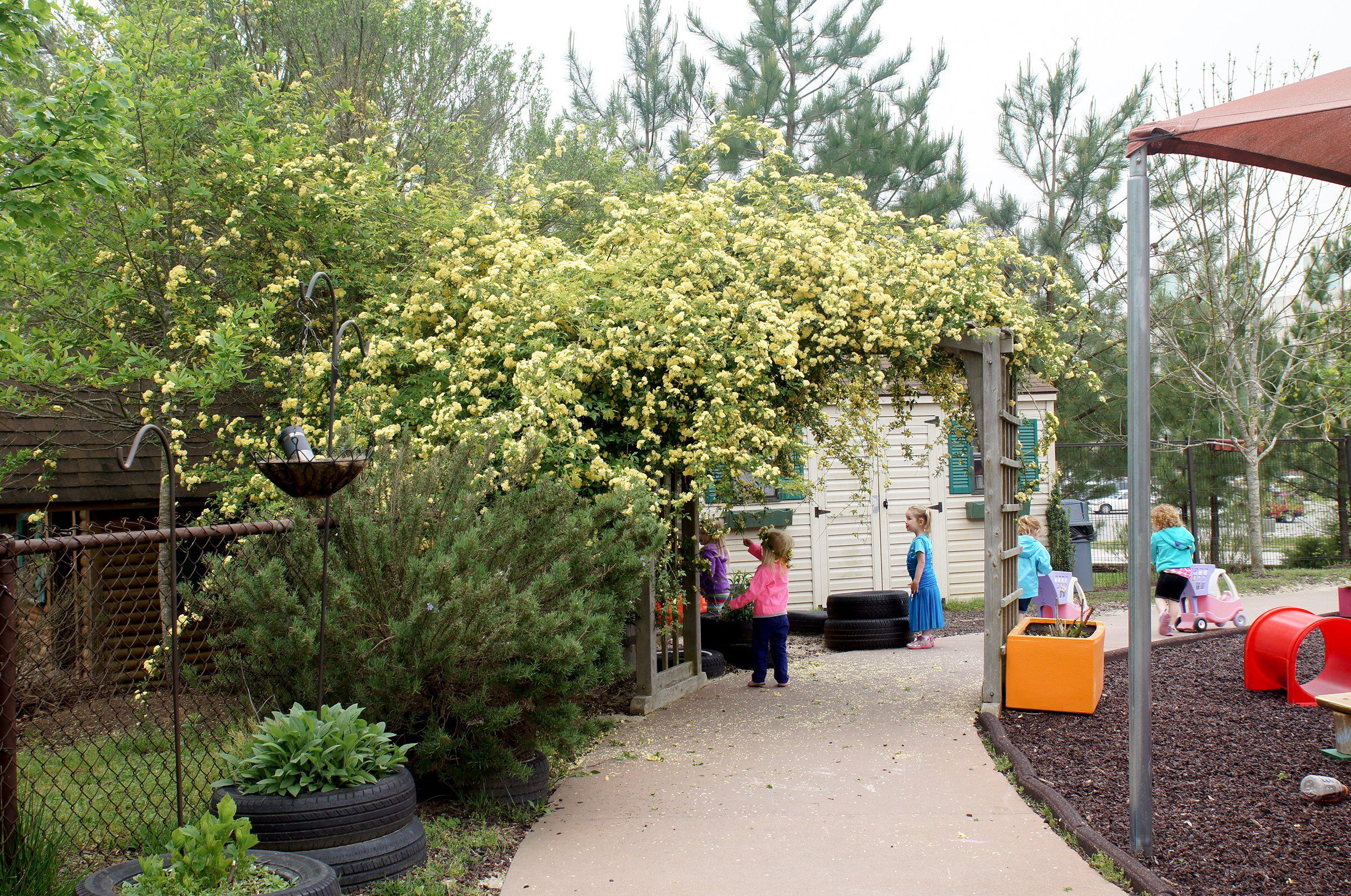
Because of COVID-19, concerns for young children’s physical and mental well-being have skyrocketed. These concerns are magnified in children and caretakers experiencing compromised or vulnerable situations. That’s why the mental and physical health benefits of regular time outside is more important than ever. Now is the perfect time to improve and maximize your outdoor play environments as a critical tool in your healthy child care.
1. Provide an Assortment of Activity Settings
The key to managing outdoor time with young children is providing an array of unique and dynamic settings and activities. Keep groups separate by rotating them between activities. If you have enough space, create subdivisions that serve individual groups by using low fences, plantings, snow fencing, hanging textiles or shower curtains.
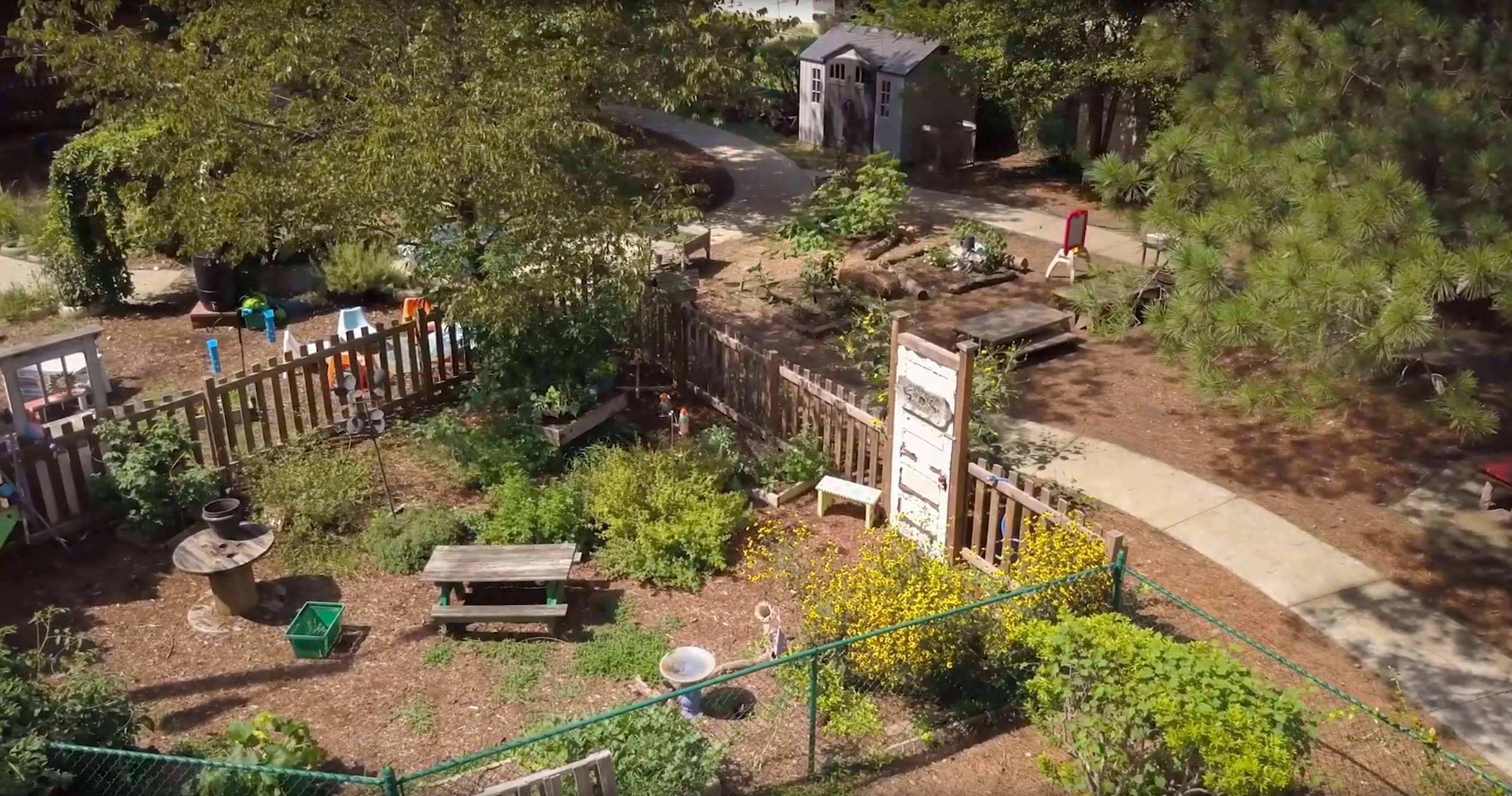
Credit: Natural Learning Initiative
2. Don’t Forget Shade, Rain and Snow Cover
While sunlight can play an important role in deactivating the virus that causes COVID-19, over-exposure to UV rays is, itself, a health risk. Balance sun with shade, which is crucial for summer comfort. Scattered patches of shade will protect children while still allowing the sun to penetrate. Planting trees is a long-term shade solution with added educational value. Mix shade sails, tents, umbrellas, pergolas, arbors and roof structures as a more short-term solution. Many of these shade solutions can also provide protection from rain, wind and snow.
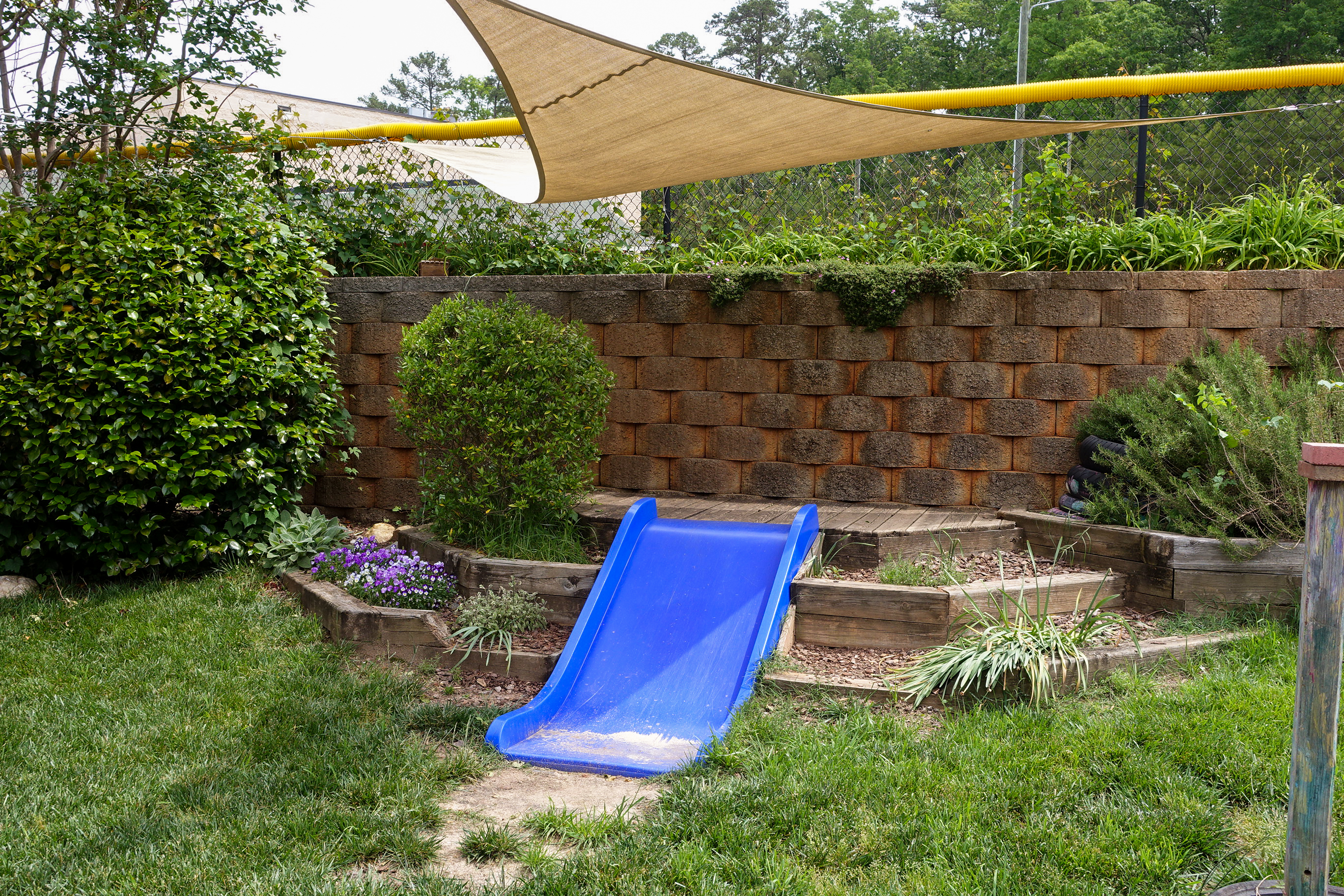
Credit: Natural Learning Initiative
3. Facilitate Circulation Between Settings
Provide easy-to-follow routes that can guide the cohorts of both providers and children. Designated pathways need to be wide enough for groups to move quickly, following “one way” rules.
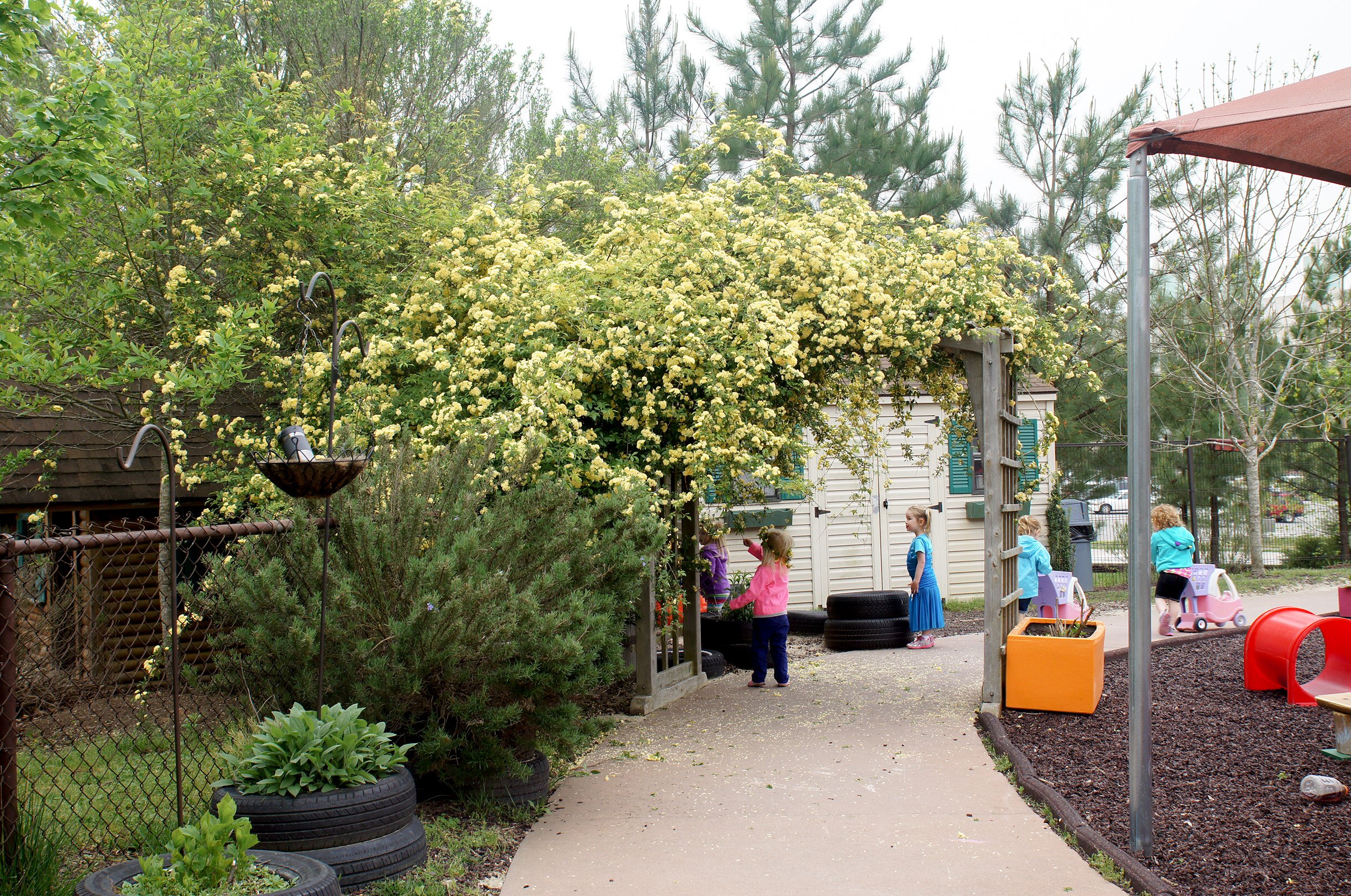
Credit: Natural Learning Initiative
4. Explore Nature in Its Many Forms
A variety of natural activities, materials and play settings offers more choices for creative, active play. They also expand the range of options for children to activate all their senses. Plant insect-attracting, flowering perennials or ornamental grasses for a low-cost way to begin naturalizing child care outdoor spaces. Choose plants with persistent seeds and fruits that are interesting year-round. During the winter months, add birdhouses to attract friendly wildlife. Providing plants and birdhouses will also create endless learning opportunities for young children.
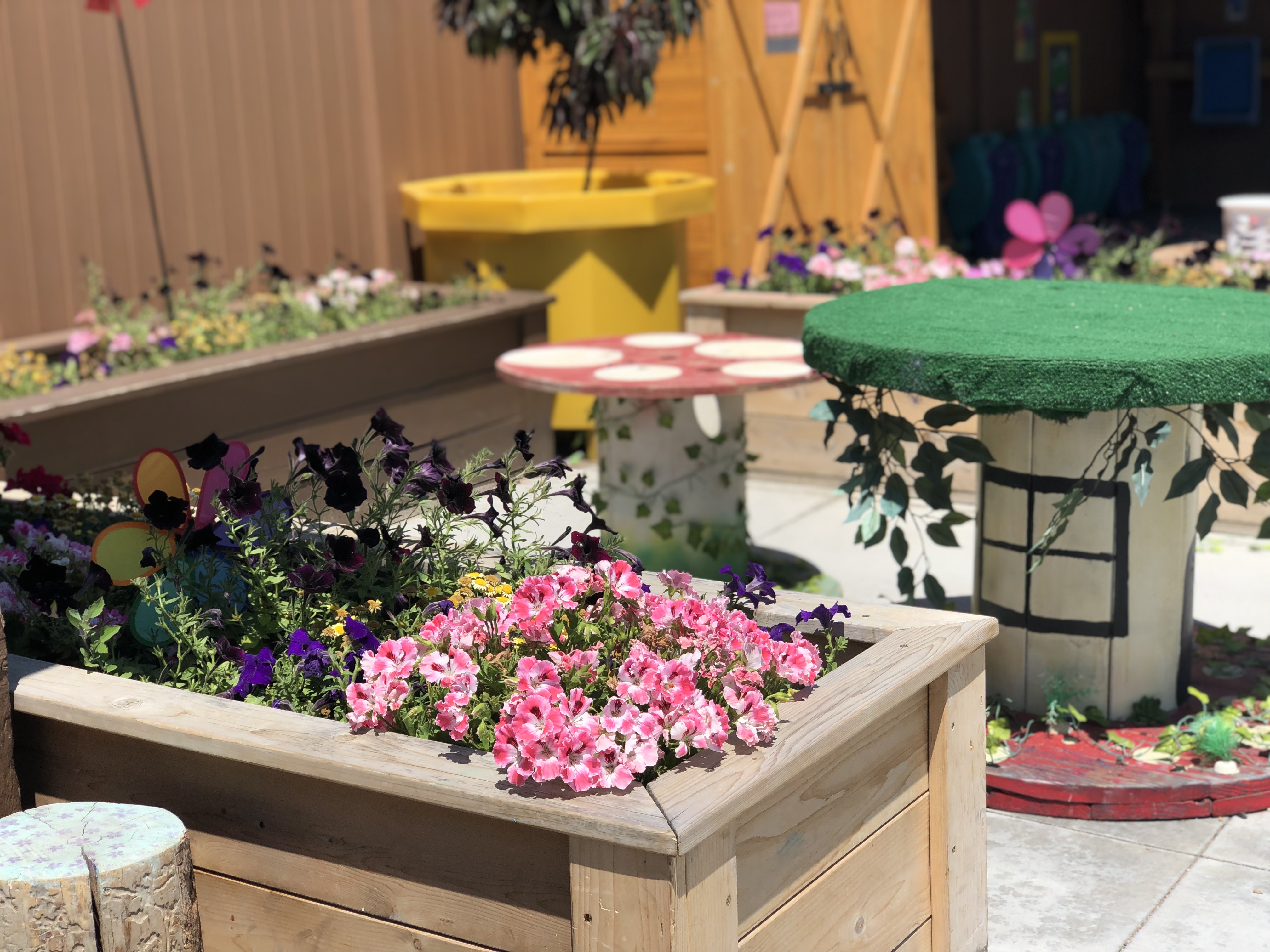
Credit: Early Childhood Health Outdoors
5. Repurposing Closed Areas
If playground equipment use is not allowed during COVID-19, parts of the setting may be used while still following the rules. Repurpose settings with movable features and large use-zones, like swings, for other activities. (Don’t forget to tie up swing seats out of children’s reach!) Drape climbing structures with textiles to convert them into ground-level playhouses with a lower density of use and reduced high-touch surfaces. If sand play is restricted, place a safe, stable platform above the sand to create a surface for play with natural objects.
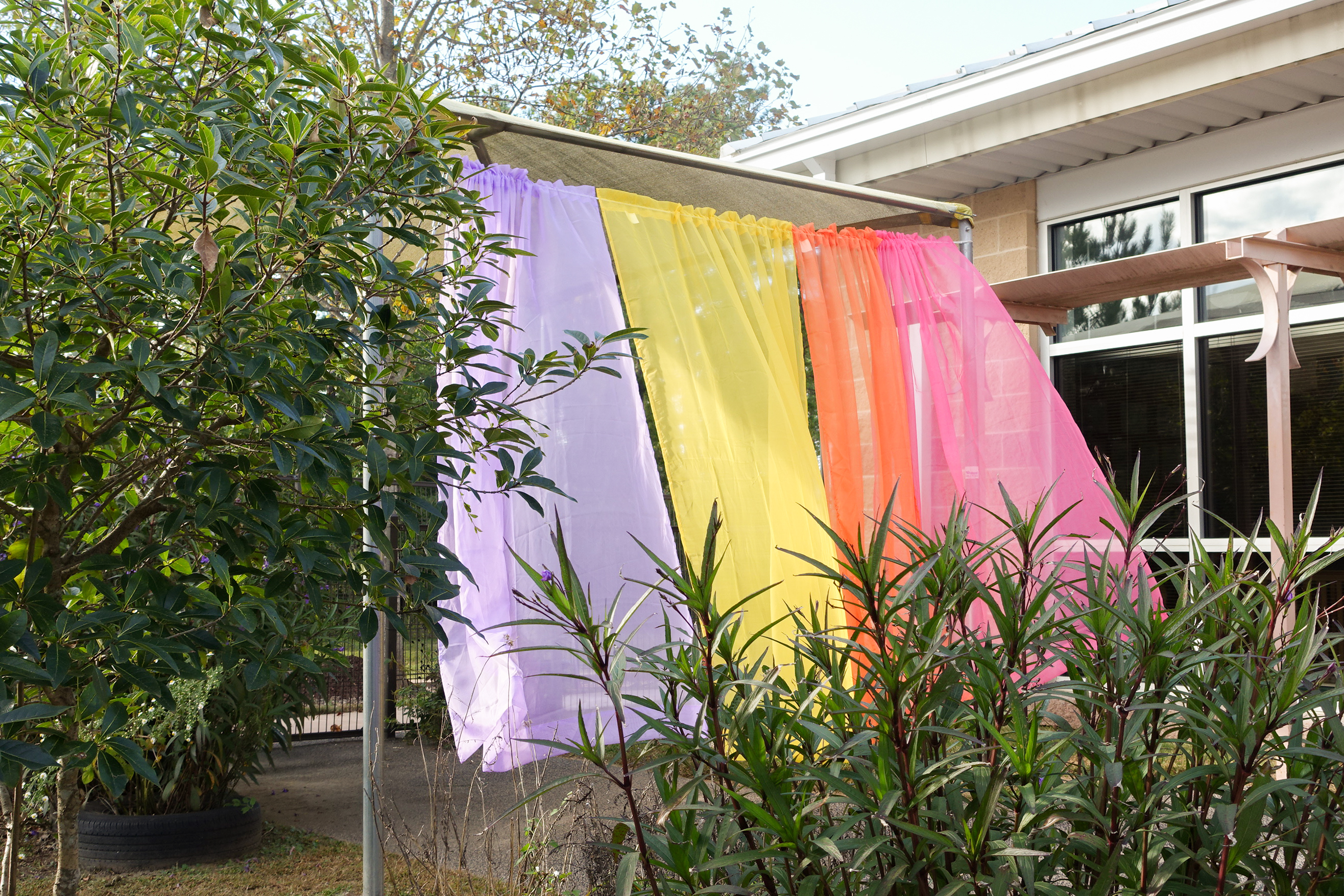
Credit: Natural Learning Initiative
6. For Centers where Licensed Space is Tight
Think beyond your licensed area. Woodlands, adjacent fields and even parking lots can be enclosed and repurposed temporarily. Walking field trips to nearby parks could become an engaging weekly activity (with parental consent).
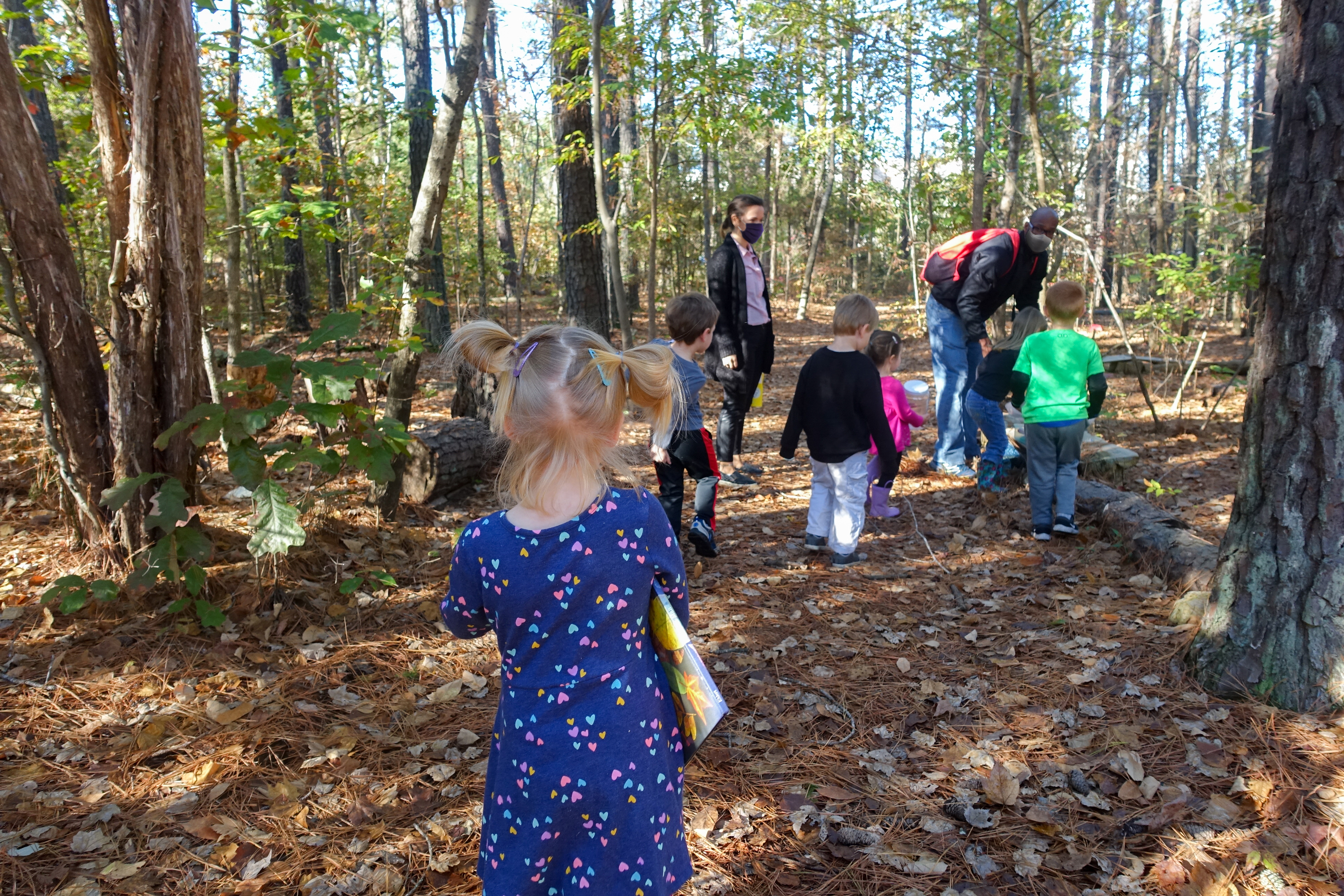
Credit: Natural Learning Initiative
Liz Houston, Early Childhood Health Outdoors (ECHO) Partnerships Manager, National Wildlife Federation

Liz Houston has three decades of experience in management, strategic planning, resource development, communication and community engagement. She currently helps facilitate local and statewide partnerships to help scale the ECHO program nationally. ECHO enhances nature play and learning wherever young children spend their time, with the vision that every young child experiences nature daily for the health of our kids, communities and planet. Previously, Liz managed the statewide advocacy network for the Colorado Children’s Campaign, and was a fundraiser at the Denver Art Museum, the National Sports Center for the Disabled and Colorado School of Mines. Most recently, Liz served as Executive Director of Colorado’s Early Childhood Council Leadership Alliance.
![ECCTAC-Logo[1]-1](https://cdn2.hubspot.net/hub/3957809/hubfs/Rich%20Text%20Pasting/unknown-1595431381223.png?width=299&name=unknown-1595431381223.png)
